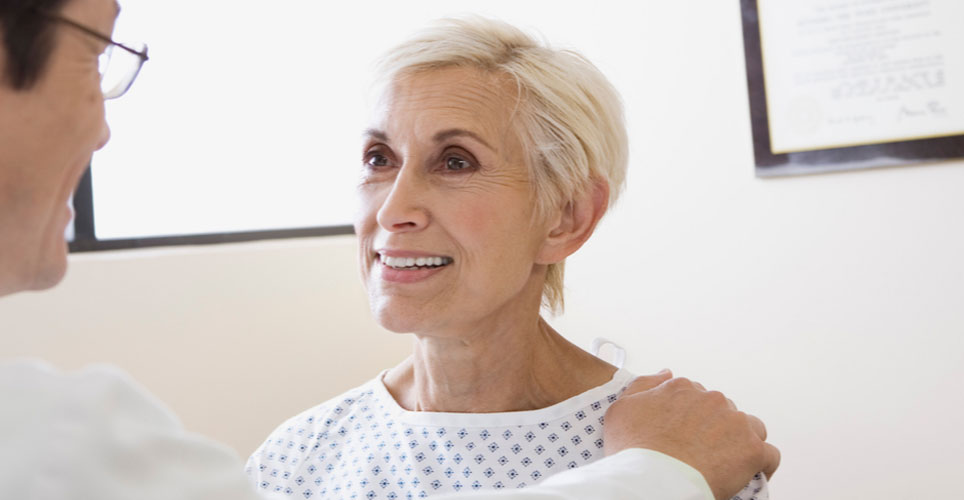
Whether you have a genetic predisposition or not for breast cancer, there are changes anyone can make to reduce risk of the disease.
Breast cancer is the most commonly diagnosed cancer in the United States, representing 15 percent of diagnoses. Some 12.4 percent of American women will be diagnosed with breast cancer in their lifetimes, and an estimated 40,000 women will die of breast cancer in 2017, according to the National Cancer Institute.
Of these cancers, about 15 percent have a strong hereditary component, which is why it’s important to know your family history and talk to your doctor about genetic counseling if a close relative had breast or ovarian cancer.
Whether you have a genetic predisposition for breast cancer, there are changes anyone can make to reduce risk of the disease.
“There are risk factors that you can control, and there are risk factors you cannot control,” says Sofia Merajver, M.D., Ph.D., director of the Breast and Ovarian Cancer Risk and Evaluation Program at the University of Michigan Rogel Cancer Center. “You cannot modify your family history, but there are lifestyle factors you can modify -- some more easily than others.”
Below are six ways to help prevent breast cancer (also available in this handy, printable infographic):
1. Limit Alcohol
Women who consume 2 or 3 drinks (or more) per day have a 20% higher breast cancer risk. Limit yourself to 3 or 4 drinks per week.
2. Watch Weight
Those who are overweight or obese have a higher breast cancer risk, especially after menopause, when most of women's estrogen comes from fat tissue. (This leads to higher estrogen levels, which can cause breast cancer.)
3. Eat Healthily
Aim for 5 servings of vegetables and 2 fruit daily. Look for lean protein sources, replace animal fats with polyunsaturated fats and avoid processed foods.
4. Exercise
Inactivity can increase cancer risk. Each week, aim for 150 minutes of moderate exercise (50% to 70% of your maximum heart week), or 75 minutes of vigorous exercise (70% to 85% of maximum heart rate.)
5. Have Children
Having children later in life or not at all increases your breast cancer risk.
6. Breastfeed
Studies have shown that breastfeeding, especially for more than 18 months, can reduce breast cancer risk.
Get additional resources from U-M Rogel Cancer Center, including more prevention tips, information on screening and genetic testing, and expert advice on what to do if you're diagnosed with breast cancer.
